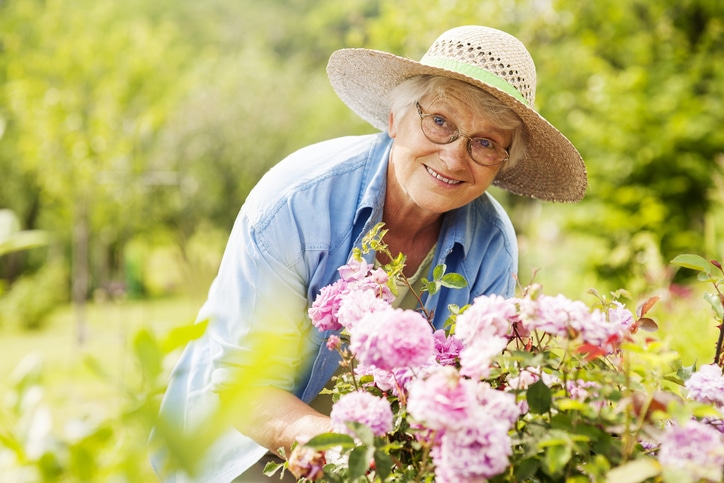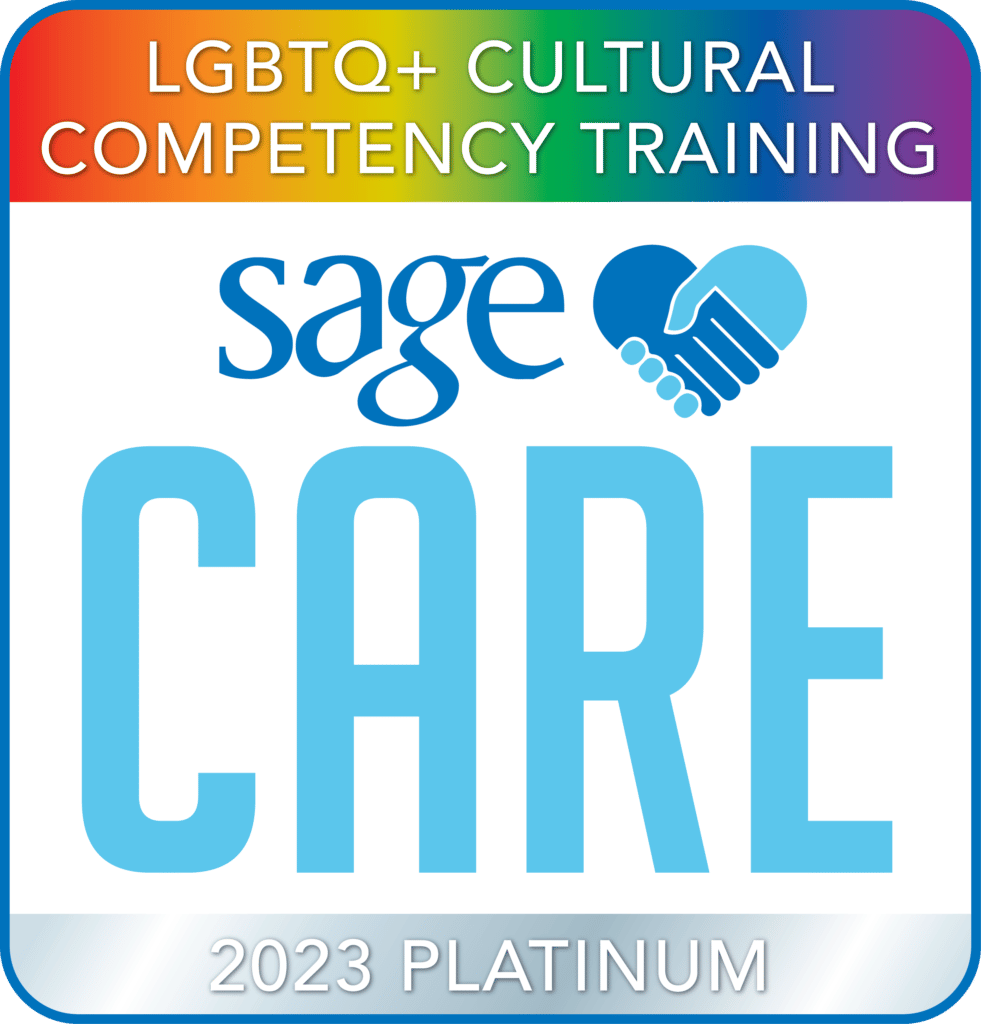Health Benefits of Gardening for Seniors

Gardening is a wonderful activity with multiple health benefits for seniors. In addition to being a form of exercise that helps to tone and strengthen muscles, it also supports cardiovascular health, promotes bone strength, and helps reduce stress, dementia risks, and social isolation. Here are some insights into exactly how gardening helps seniors stay fit and healthy, from our team specializing in at-home care for the elderly.
- Stress reduction – Studies show that gardening is an activity that lowers levels of the stress response hormone cortisol by combining exercise with the relaxation we experience when we’re in nature. Reduced cortisol means lower blood pressure, easier digestion, improved sleep, and reduced anxiety.
- Eases depression – Gardening helps to treat depression by increasing serotonin levels, easing depression symptoms, and improving your mood. Serotonin promotes feelings of calmness and peace, while working in a garden gives you a sense of purpose and productivity. You can multiply these benefits by joining community gardening groups and clubs, as working together on projects helps form social bonds that also reduce risks of depression and isolation.
- Supports a healthy immune system – A little bit of dirt in your life can do wonders for your immune system! Friendly bacteria in soil, called mycobacterium vaccae, help support the good bacteria in your body, which help combat allergies, asthma, psoriasis, poor digestion, and even depression.
- Reduces dementia risks – One of the best ways to reduce risks of dementia is to keep the brain healthy and active. Gardening ticks all the boxes by supporting cardiovascular health and improving circulation and endurance, as well as strengthening muscles, practicing motor skills and dexterity, and even challenging the brain by solving gardening problems, planning planting for vegetable and flower gardens, and learning about new plants and gardening techniques.
Gardening safety tips for seniors
Get the most out of gardening by:
- Wearing good sun protection – Always wear a wide-brimmed hat, UV rated sunglasses, and a broad-spectrum sunscreen. It’s also important to limit your gardening activities to the earlier hours of the morning, late afternoon, or early evening, when there’s less risk of heat stroke or sunburn. It’s also better for your plants!
- Stay hydrated – Drink plenty of water before you garden as well as after you’re done, even if you don’t feel thirsty or it’s cooler outdoors. Have a bottle of water with you so you can sip on it as you work, so you don’t have to keep going inside.
- Wear protective clothing – Wear lightweight, light colored, breathable long sleeve shirt to protect your skin from the sun. It’s also a good idea to wear closed-toe shoes with good grip so you can keep your feet protected and walk and work easily.
- Garden comfortably – Invest in comfortable, ergonomic gardening equipment and don’t overexert yourself. We love foam pads that fit under your knees (they protect your pants from grass and soil stains too!) and lightweight gardening tools with rubber grips. Get help for any heavy lifting, jobs that require a ladder or power tools, and plan your garden with raised beds and trellises so you don’t have to bend down too much.
Looking for professional home health aide services in New Jersey?
If your loved one needs a helping hand to maintain their independence and health at home, chat to the team at UMC HomeWorks about getting a qualified, experienced, and trustworthy home health aide in NJ. You can also look at our website for more information on how our innovative at home care for elderly program works:
https://umcommunities.org/homeworks/cost-of-home-care-for-elderly/





